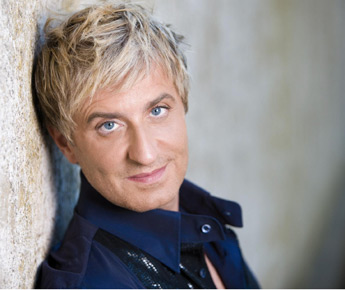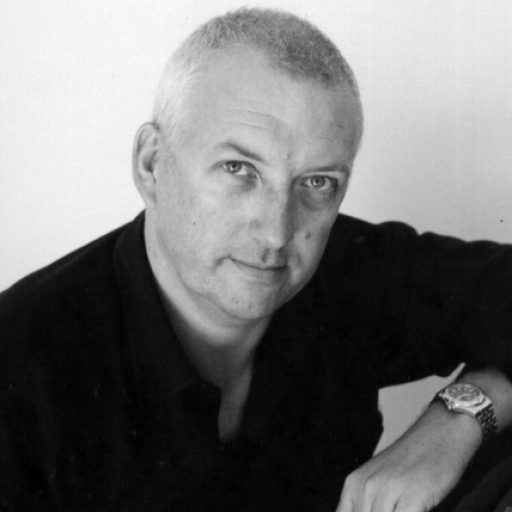This article appeared in Fine Music magazine (Nov 2013) – available at http://issuu.com/finemusic/docs/fine_music_magazine_november_2013
It is often said that music is an international language. In the person of pianist Jean-Yves Thibaudet, there is no greater truth.
 Set to visit Sydney for performances with the Sydney Symphony Orchestra in December, Thibaudet is a truly global artist.
Set to visit Sydney for performances with the Sydney Symphony Orchestra in December, Thibaudet is a truly global artist.
Having been born and raised in Lyon in France, later studying at the Paris Conservatoire, he now chooses to live in Los Angeles.
“It was America which saw me give most performances when I was starting out, rather than in Europe,” said Thibaudet.
Having been taught by one of Ravel’s students at the Conservatoire, Lucette Descaves, Thibaudet’s performances and recordings of Ravel have, no doubt, made him a superstar of French piano music.
But his new home of the United States has also given him a love for the music of George Gershwin.
There is a synergy about this Parisian in America, who is both an exponent of the music of Ravel and Gershwin, two of the great twentieth century composers, who themselves admired each other’s work.
In fact, Ravel travelled twice to the US, and both Ravel and Gershwin met three times. In the United States, Ravel heard blues for the first time, afterwhich he composed the G major Piano Concerto and the Concerto for Left Hand. Gershwin sought so much to be an accepted mainstream composer that he even asked Ravel to teach him orchestration.
Thus it was with these two great figures in the world of music, that each wanted to learn from the other. For Thibaudet, being a musician is about continuing to learn and finding new things to say through music.
Thibaudet, who will perform Gershwin’s Piano Concerto in F with the Sydney Symphony Orchestra, thinks Gershwin is a genius.
“Gershwin is a fascinating composer, a unique person in the world of music,” Thibaudet said. “I think he belongs to all categories, and I must say, I hate categories! Gershwin fits into the world of jazz, popular and classical music.”
“What fascinates me is to wonder what might have been produced had Gershwin not died so young.”
As he reminiscences, he recalls that at the age of 13 or 14 he performed both the Concerto (in G) and Rhapsody in Blue by Gershwin. But he is quick to point out that he is somewhat glad that these early performances were not recorded, as he believes that they would have shown a performance style that was not entirely in tune with the style.
“If you don’t understand jazz, then it’s like speaking a language simply phonetically … I discovered jazz at the age of 16 at the Conservatoire. I now adore jazz; it is a big part of my life.”
Afterall, out of the 40 recordings he has made for Decca, two stand out as showing his love and influence from jazz, Conversations with Bill Evans and Reflections on Duke, both made in the late 90s.
He relishes in the connection between his home country of France and the American jazz world.
“A bridge spans between Paris and America, as both have great jazz musicians, great jazz audiences and love of blending jazz with classical genres,” he said.
But as soon as he digs deep into these links, he is quick to point out his love of all music. For he doesn’t like being pigeonholed. “I hate categories”. So he would prefer to be known for all the music he plays, not just one or two very well-known composers.
Starting to reel off a list of those composers he loves such as Liszt and Chopin, he realises that this is futile. Thibaudet just has a natural enthusiasm for music. He also loves opera and attends often wherever he can.
He even has given prominence for an oft-times neglected French composer, Eric Satie, whom people dismiss as being a light-weight composer, or one diminished to background music. But Thibaudet researched surviving manuscripts and found a lot of untapped material, such that there was sufficient for a 5-box CD set to be released by Decca.
“I love German music too,” he admits, “like Brahms and Schumann. You know half me is German, as my mother was German. Whilst growing up in France, I spent a lot of time in Germany with my grandparents.”
As he continues to look back to his beginnings, Thibaudet is pleased that from an early age, he was happy to think of himself as a pianist.
“I remember growing up and seeing my friends worry all the time about what they were going to do when they were adults. I was destined to be a pianist.”
Like many, Thibuadet’s early start in music is due to his musical parents. As well, he started with fine teachers at the Lyon Conservatoire, when only five.
It was when he was seven that his father took him to a concert by the legendary Arthur Rubinstein. Afterwards, his father took him backstage and the young Jean-Yves sat on Rubinstein’s knee for 15 minutes and had a long conversation. When the great master asked him what he thought he wanted to be when he grew up, he responded with “ I want to play concerts just like you, and travel all around the world.”
Being a superb conversationalist, he continues to delve into life had he not been a pianist.
“I would have liked to be a lawyer, as I love to talk … maybe a vet, as I love animals … maybe a diplomat, as I love to travel, but being a musician is like being an ambassador, as there is no language barrier,’ he said.
“Music speaks to everyone; it has the power to bring people together, especially when you think of the problems of the world, with its many wars and divisions, due to religion,” he said.
Now that he has reached the pinnacle of world acclaim as a pianist, he does not believe that he can rest on his laurels.
He continues to enjoy what he is doing every day, noting that he believes in practising for three hours or more every day. “Even if I play the same piece, I have to play it over and over. There is no other secret.”
“My ability to keep up to the mark, considering I am on the road for 9 to 10 months a year, is to remain very disciplined. I just practise every day and, as well, I need lots of sleep.
“With lots of concerts every month, this also keeps me in better shape, just like an athlete,” he said. “If you run more or swim more, it keeps you in better shape – so that’s why I still enjoy playing concerts.”
If asked by young aspiring pianists, his mind turns back to his brush with Rubinstein. “It (being a pianist) can be a hard way; you have to find your own balance,” he said.
“For those contemplating a career in performing, you have to love music to the point where you cannot live without it.”
Despite all the accolades and acclaim, Thibaudet still is not satisfied in himself. “I believe you can always do better, but I still enjoy every time I go on stage.”
After winning numerous prizes when studying at the Conservatoires in both Lyon and Paris, he got his first big break by winning the Prix du Conservatoire at the age of 17, and then the Young Concert Artists Auditions in New York at age 18.
From then, he has been the toast of every leading symphony orchestra, from the Royal Concertgebouw, Chicago Symphony, and Gewandhaus Orchestra in Leipzig to the Los Angeles Philharmonic.
But his forthcoming trip to play with the Sydney Symphony Orchestra is not his first. He has visited Australia many times.
“I first visited in 1986. I just love the country, the people, the audiences. I always have such a good time,” he said. He even has contemplated living here, but the distances to continue an international career are just too great for him.
In his frequent trips to Sydney, Thibaudet has played under many conductors, particularly Edo de Waart, and noted especially the one and only time he played with Stuart Challender in 1990, commenting that he felt “blessed” from this one event.
Believing that Sydney is a mix of Los Angeles and San Francisco, Thibaudet loves the weather and style of the people here. He continues to praise Sydney with words like “blessed” and “fascinating”, showing an obvious rapport with this city and its people.
He also knows that the youth of this country allows it to be more free and relaxed.
“Classical music must change its image from being old-fashioned and rooted in old Europe,” he said. “It has been the same for hundreds of years that it has become rigid, and I think we need to keep changing, in order to attract new audiences of young people.”
“It can’t be boring. It’s sometimes old and dusty. Why do men have to wear tails?” he asks. For Thibaudet, music doesn’t just sit on its own. He likes to fuse fashion into his performances, and he chooses his attire carefully.
Whilst not wishing the clothes he wears to dominate his playing, he is excited and knows he is serving music well when he also pays attention to what he is wearing. Having lots of friends in the fashion industry, he attends lots of runways, noting that his favourite designer, whom he has worn frequently, is Vivienne Westwood.
“My fashion sense helps in liberating classical music. It can be made fresh,” he said. “I think classical music needs to be more modern, and I like to bring something new to the stage.”
In Jean-Yves Thibaudet, there is a man of international scope and wide musical horizons; a man who is devoted to liberating music and bringing joy to his audiences, whether it is through the masterpieces of European composers or modern jazz-inspired repertoire.
